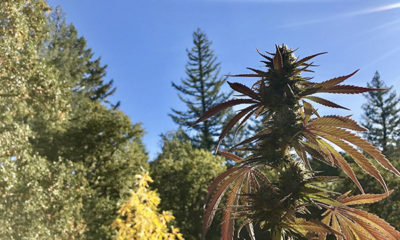
Joint Opinions
Marijuana Decriminalization Works
Decriminalization is a term often used to describe the elimination of criminal penalties associated with the possession of marijuana. It’s essentially a slap-on-the-wrist approach to enforcing pesky prohibition laws with the use of fines rather than jail. This downgrade in punishment has been gaining popularity in recent years because it allows law enforcement to focus their efforts on violent criminals, rather than fill the dockets of the criminal court system with petty drug offenders.
Unfortunately, this concept frightens some police departments because they have been brainwashed to believe that marijuana is one of the great plagues on civil society. Some of these officers have been busting stoners their entire career, so it’s difficult for them to consider shifting gears and wage war on a new enemy.
Yet, decriminalization is proving to be a solid policy in major cities across America, especially in the eastern part of the nation where Washington, D.C., Philadelphia and New York City have all recently reported that marijuana arrests in their neck of the woods have diminished significantly. Last month, District of Columbia Police Chief Cathy Lanier said that her department’s job has been “a little bit easier” ever since the D.C. Council passed a measure in the spring of 2014 to decriminalize the possession of small amounts of marijuana.
This sentiment is shared by law enforcement officials in Philadelphia, who released a report that indicates marijuana arrests have fallen dramatically since the city implemented an ordinance last October to stop busting small time pot offenders. A report published by Philly.com just a month after the new law went into effect found that arrests for weed were already down by 78 percent. The latest data indicates an even greater drop in citywide pot arrests – 88 percent.
Using figures from the latest RAND report, which estimated the cost of marijuana arrests in Vermont, The Associated Press made a hypothetical calculation in regards to how much money the City of Philadelphia has saved under the new decriminalization policy.
“We might safely say Philly saved $627,000 in 60 days under the new decriminalization policy. That puts the city on track to save $3.75 million over the course of a year,” Philly.com reported.
Pennsylvania Governor Tom Wolf recently said he would support a statewide effort to decriminalize marijuana – a move that would save the state approximately $26 million.
In New York City, Mayor Bill de Blasio’s decision to finally follow a nearly 30-year-old statute decriminalizing marijuana across the New York State has resulted in a crumbling of arrests for marijuana possession. Statistics from the New York Division of Criminal Justice, which were taken just a month after the new policy was implemented, found that pot arrests in the Big Apple had plummeted 75 percent from the year before. The summonses handed out for this offense have also taken a dive since the city implemented this policy change.
“Since the inception of our policy in 2014, marijuana enforcement activity is trending down in all categories” Chief Kim Royster told The Associated Press.
The New York City Police Department experienced some high profile controversy several years ago after it was made public that the force arrested 45,000 more pot offenders in 2011 than they did in 1995. There was little question, upon this revelation, that these war dogs were out to squeeze the blood from the stoner community and they did so using a heavy hand of racial bias. Soon, after a significant amount of noise, the arrests began to drop off, and by 2014, the force was starting to pull in the reins a bit, but still responsible for wrangling in over 26,000 people for possession of weed. It was apparent that a more extreme measure was necessary.
In the meantime, somewhere around July 2014, Brooklyn District Attorney Kenneth Thompson went rogue and decided to implement a separate policy from the other four boroughs, in which he intended to throw out cases involving low-level possession of marijuana – sort of a decriminalization effort from the back end. Essentially, the NYPD was informed that while they could continue to waste their time arresting people for petty pot possession, but his office would not likely pursue charges.
“We’re not asking the NYPD to do anything differently,” said Thompson. “If they find someone who’s committed an offense, they have the right to arrest that person. What we’re saying is, once the person has been arrested and we get notified, then we have an obligation to look at the facts of each case and to determine whether we should spend resources on prosecuting that case.”
Of course, this liberal approach to the prosecution of pot offenders was not met with pleasantries from City Hall, especially by NYC police commissioner Bill Bratton, who retaliated in a statement by saying, “in order to be effective, our police officers must enforce the laws of the State of New York uniformly throughout all five boroughs of the city. Accordingly, the Kings County policy change will not result in any changes in the policies and procedures of the NYPD.”
Four months later, Mayor de Blasio and Police Commissioner Bratton were standing before the press, announcing that the NYPD would no longer arrest anyone caught in possession of up to 25 grams of marijuana, and would simply issue offenders a $100 fine. Yet, they were adamant they would continue to bring the hammer down on people choosing to smoke weed in public, which is the typical protocol in the case of decriminalization.
Now instead of arresting tens of thousands of people for possession of small amounts of pot, the NYPD appears to be back on track, even though some officers are not happy about the change.
Has cannabis been decriminalized in your state? Tell us about it in the comments.
























